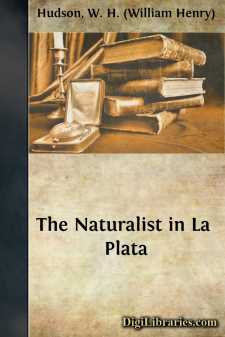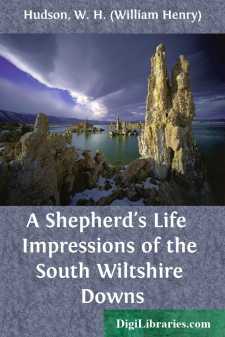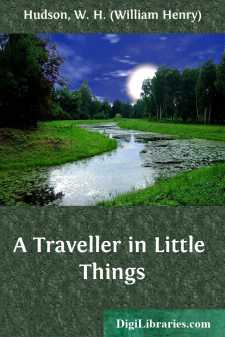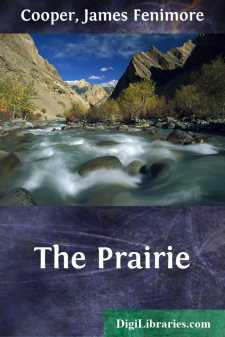Categories
- Antiques & Collectibles 13
- Architecture 36
- Art 48
- Bibles 22
- Biography & Autobiography 813
- Body, Mind & Spirit 138
- Business & Economics 28
- Children's Books 12
- Children's Fiction 9
- Computers 4
- Cooking 94
- Crafts & Hobbies 4
- Drama 346
- Education 46
- Family & Relationships 57
- Fiction 11821
- Games 19
- Gardening 17
- Health & Fitness 34
- History 1377
- House & Home 1
- Humor 147
- Juvenile Fiction 1873
- Juvenile Nonfiction 202
- Language Arts & Disciplines 88
- Law 16
- Literary Collections 686
- Literary Criticism 179
- Mathematics 13
- Medical 41
- Music 40
- Nature 179
- Non-Classifiable 1768
- Performing Arts 7
- Periodicals 1453
- Philosophy 64
- Photography 2
- Poetry 896
- Political Science 203
- Psychology 42
- Reference 154
- Religion 505
- Science 126
- Self-Help 81
- Social Science 81
- Sports & Recreation 34
- Study Aids 3
- Technology & Engineering 59
- Transportation 23
- Travel 463
- True Crime 29
The Naturalist in La Plata
Description:
Excerpt
CHAPTER I.
THE DESERT PAMPAS.
During recent years we have heard much about the great and rapid changes now going on in the plants and animals of all the temperate regions of the globe colonized by Europeans. These changes, if taken merely as evidence of material progress, must be a matter of rejoicing to those who are satisfied, and more than satisfied, with our system of civilization, or method of outwitting Nature by the removal of all checks on the undue increase of our own species. To one who finds a charm in things as they exist in the unconquered provinces of Nature's dominions, and who, not being over-anxious to reach the end of his journey, is content to perform it on horseback, or in a waggon drawn by bullocks, it is permissible to lament the altered aspect of the earth's surface, together with the disappearance of numberless noble and beautiful forms, both of the animal and vegetable kingdoms. For he cannot find it in his heart to love the forms by which they are replaced; these are cultivated and domesticated, and have only become useful to man at the cost of that grace and spirit which freedom and wildness give. In numbers they are many—twenty-five millions of sheep in this district, fifty millions in that, a hundred millions in a third—but how few are the species in place of those destroyed? and when the owner of many sheep and much wheat desires variety—for he possesses this instinctive desire, albeit in conflict with and overborne by the perverted instinct of destruction—what is there left to him, beyond his very own, except the weeds that spring up in his fields under all skies, ringing him round with old-world monotonous forms, as tenacious of their undesired union with him as the rats and cockroaches that inhabit his house?
We hear most frequently of North America, New Zealand, and Australia in this connection; but nowhere on the globe has civilization "written strange defeatures" more markedly than on that great area of level country called by English writers the pampas, but by the Spanish more appropriately La Pampa—from the Quichua word signifying open space or country—since it forms in most part one continuous plain, extending on its eastern border from the river Parana, in latitude 32 degrees, to the Patagonian formation on the river Colorado, and comprising about two hundred thousand square miles of humid, grassy country.
This district has been colonized by Europeans since the middle of the sixteenth century; but down to within a very few years ago immigration was on too limited a scale to make any very great change; and, speaking only of the pampean country, the conquered territory was a long, thinly-settled strip, purely pastoral, and the Indians, with their primitive mode of warfare, were able to keep back the invaders from the greater portion of their ancestral hunting-grounds. Not twenty years ago a ride of two hundred miles, starting from the capital city, Buenos Ayres, was enough to place one well beyond the furthest south-western frontier outpost....






















